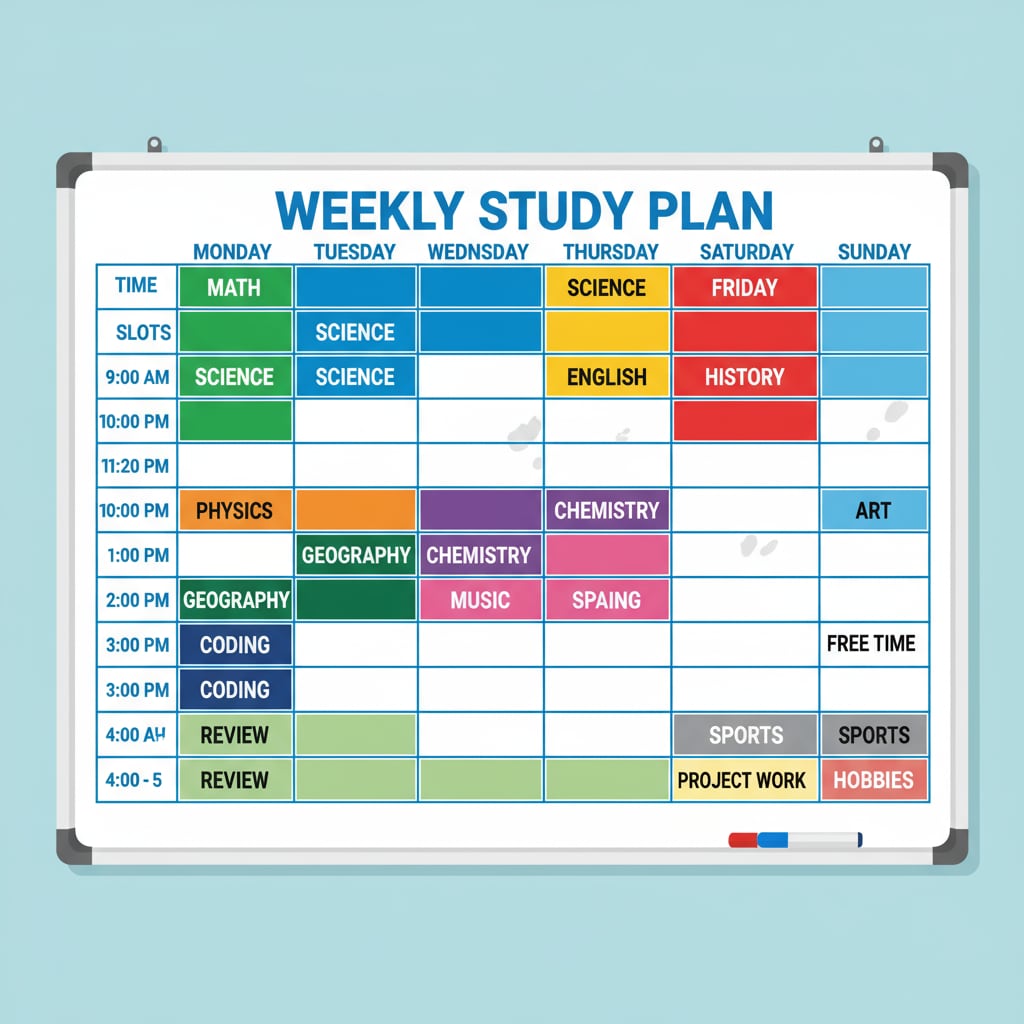When it comes to exam preparation, having good learning methods and effective time management are crucial, especially in the short term. As the exam date approaches, many K12 students find themselves in a state of anxiety and confusion. This article will introduce a set of scientific short-term exam preparation strategies to help students consolidate knowledge and improve skills within a limited time, making the most of that “last-minute cramming.”

Smart Time Allocation
Time management is the cornerstone of short-term exam preparation. First, create a detailed schedule. List all the subjects and the time you plan to allocate to each. For example, if you have three main subjects to study in a week, divide the available study hours evenly among them. However, don’t forget to leave some buffer time for breaks. According to Education.com’s guide on exam preparation, taking regular breaks can improve concentration and learning efficiency. This way, you can ensure that your study time is well-spent and not wasted on unproductive activities.

Pinpointing Key Areas
Another important aspect of exam preparation is to identify the key points. Go through your class notes, textbooks, and previous assignments. Look for topics that have been emphasized by your teachers or frequently appear in past exams. These are the areas you should focus on. You can also consult your teachers if you’re unsure. They have a better understanding of the exam requirements and can guide you to the most important knowledge points. As Britannica’s education section mentions, having a clear understanding of the learning objectives can enhance your study effectiveness.
Once you’ve determined the key areas, make a summary of them. Write down the main concepts, formulas, and important details. This will make it easier for you to review and remember them later.
Readability guidance: Each H2 section focuses on a key aspect of short-term exam preparation. The paragraphs are short and to the point, with transition words like “first,” “however,” and “also” to make the flow smooth. Lists can be used in the following sections to further clarify points.
Effective Review Techniques
Now that you’ve allocated your time and identified the key areas, it’s time for effective review. One of the best methods is active recall. Instead of simply reading through your notes, try to quiz yourself. Cover up the answers and see if you can remember the important points. This forces your brain to actively retrieve the information, which is much more effective than passive reading. In addition, teaching someone else what you’ve learned is a great way to reinforce your knowledge. You can explain the concepts to a study partner or even to yourself out loud. This not only helps you understand the material better but also reveals any gaps in your knowledge.

Staying Motivated and Healthy
Finally, maintaining motivation and a healthy lifestyle is essential during exam preparation. Set small goals for yourself and reward yourself when you achieve them. This could be something as simple as taking a short break to watch a favorite show or having a delicious snack. A positive attitude can make a big difference in your study efficiency. Also, don’t neglect your physical health. Get enough sleep, eat a balanced diet, and exercise regularly. A healthy body and mind are better equipped to handle the stress of exam preparation.
In conclusion, with proper time management, a focus on key areas, effective review techniques, and a healthy lifestyle, K12 students can make the most of their short-term exam preparation. These strategies can help turn that “last-minute cramming” into a productive and effective way to boost your exam performance.


